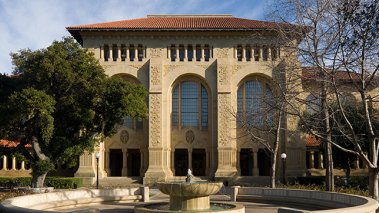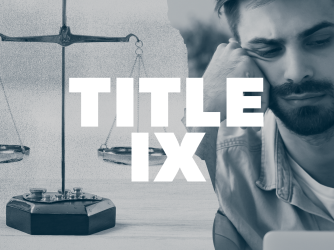Table of Contents
Did Stanford’s Student Government Break the Law?

Jason Willick is a FIRE summer intern.
This past spring, the Stanford Constitutional Council—the judicial arm of the student government, bound by a student constitution that essentially restates the First Amendment—made a remarkable pronouncement: “We do not feel compelled,” the four Stanford undergraduates on the panel declared in a ruling, “to follow the precedents set by the Supreme Court of the United States of America.”
The case at issue concerned the student government’s revocation of funding to a campus group, the Stanford Anscombe Society, in the face of student hostility to the group’s belief that marriage is “the union, until death, between a man and a woman.” The Graduate Student Council (GSC) initially granted the group’s request for $600 to support its planned conference on “Marriage, Family and the Media.” When it turned out that the Anscombe Society had invited speakers who opposed same-sex marriage, a number of Stanford students began to lobby the student government to suppress the event. At the next meeting, one student government official declared that the event was “unacceptable on Stanford campus” because it was “intended to promote one man, one woman.” The Graduate Student Council revoked the Anscombe Society’s conference funding. FIRE, which has covered the case at length, wrote a letter to Stanford President John Hennessy calling for Anscombe’s funding to be restored.
The Anscombe Society charged that its right to free speech had been violated and appealed to the Constitutional Council for relief. It based its claim on Stanford’s official policies—which guarantee all students the right to free expression—as well as the student government constitution, which states:
The Association shall enact no legislation respecting an establishment of religion, or prohibiting the free exercise thereof; or abridging the freedom of speech, or of the press; or the right of the people peaceably to assemble, and to petition the Association for a redress of grievances.
Accordingly, FIRE’s letter to Stanford cited the Supreme Court decisions in Rosenberger v. Rector and Visitors of University of Virginia (1995) and Board of Regents of the University of Wisconsin System v. Southworth (2000), which held that the First Amendment prohibits viewpoint discrimination in the distribution of funds to student groups at public universities.
Many private university student governments, even though not technically bound by Rosenberger and Southworth, follow the rulings’ guidance in order to protect minority opinions on campus. Nonetheless, the Constitutional Council denied the petition and cavalierly brushed aside the Anscombe Society’s free speech claims: “We do not find that the denial or revocation of funding constitutes a prohibition or abridgment of free speech.” The Constitutional Council apparently understood that this statement was irreconcilable with the logic of Rosenberger and Southworth, so it helpfully made its contempt for Supreme Court precedents explicit.
As much as the student government’s actions against the Anscombe Society violate the spirit of academic freedom and Stanford’s explicit promises on free speech, the First Amendment is not directly binding because Stanford is a private university. Nonetheless, there is still a chance that the Anscombe Society would have a case against Stanford in a court of law.
Free speech law is not merely advisory at Stanford, as the Constitutional Council apparently believes. Stanford is bound by the First Amendment indirectly through the “Leonard Law,” a California statute enacted in 1992 to combat widespread censorship at private colleges and universities, Stanford included. The Leonard Law states:
No private postsecondary educational institution shall make or enforce any rule subjecting any student to disciplinary sanctions solely on the basis of conduct that is speech and that, when engaged in outside the campus or facility of a private institution, is protected from governmental restriction by the First Amendment to the United States Constitution or Section 2 of Article 1 of the California Constitution.
The Leonard Law has been successfully invoked to vindicate First Amendment rights at Stanford in the past: In the 1995 case Corry v. Leland Stanford Junior University, a California Superior Court judge struck down Stanford’s speech code as an unconstitutional restriction designed to favor certain viewpoints over others.
The first question a court would need to consider in a Leonard Law challenge in the Anscombe case is whether the law applies to student governments—in this case, the GSC. In an understandable attempt to distance itself from the GSC’s shameful behavior, the Stanford Communications Office told FOX News that the GSC is “a non-profit organization separate from the university.” But for the purposes of the First Amendment, courts have treated student governments as indistinguishable from the university when they are delegated with official university powers, such as distributing funds collected through student fees, which Stanford students are required to pay. In Southworth, the Supreme Court held that the University of Wisconsin’s student government was effectively an arm of the university and could not discriminate against student groups because of their viewpoint. The same logic should apply here. As the primary funding body for Stanford’s graduate student organizations, the GSC is a subsidiary of Stanford University and may not flout the Leonard Law with impunity.
The second question is whether action was taken against the Anscombe Society solely on the basis of speech that is protected by the First Amendment. One student government official suggested that the event could be suppressed because expressing opposition to same-sex marriage is a form of “hate speech.” Putting aside the question of whether the Anscombe Society’s earnestly held views—shared by almost half of the country—merit that designation, the fact is that “hate speech” is not a recognized legal category in the United States. The Supreme Court has repeatedly rejected attempts to silence speech merely because some people consider it to be hateful (see, for example, Smith v. Collin (1978), dealing with Nazi marches in Illinois, or Snyder v. Phelps (2011), dealing with protests at military funerals).
Moreover, it is clear from the record that hostility to the Anscombe Society’s viewpoint was the only reason the funding was revoked. The minutes from the meeting are replete with comments such as “the view that marriage is between a man and a woman is, at the least discriminatory, at worst hate speech.” There is no mention of a shortage of funding; indeed, the GSC distributed tens of thousands of dollars to other groups at the same meeting that it revoked the Anscombe Society’s $600. And as other Stanford students have noted, activity fees at Stanford are sky-high even as Stanford’s student government is sitting on massive cash reserves—including a GSC “Buffer Fund” of more than half a million dollars.
The third element of the Leonard Law analysis of the Anscombe Society case is whether the GSC’s revocation of funding constituted a type of “disciplinary sanction.” The GSC’s own bylaws, as well as Stanford University policies for group misconduct, suggest that the action against the Anscombe Society might constitute a form of sanction covered under the law. First, consider the GSC’s “Funding Guidelines for Volunteer Student Organizations.” The document states that “events must comply with relevant university policies.” It states that failure to comply with these policies may be punished by “a revocation of already allocated GSC funding.” Second, consider the Stanford Student Activities Office’s policy on group misconduct. It lists a number of examples of group behavior that is punishable, including “violation of event policies.” Possible sanctions against groups that violate these policies include “restitution, community service, event cancellation, return of University funding and loss of University privileges” (emphasis added).
At the Graduate Student Council meeting, student government officials charged that the Anscombe Society had violated a policy against events that “have any appearance or tone of exclusivity” or which make any students feel “unwelcome.” To begin with, these policies are vague and content-based and might violate the Leonard Law on their face even if they were not enforced. In this case, GSC officials specifically cited the “inclusivity clause” as a reason for revoking the Anscombe Society’s funding. In other words, the GSC determined that the Anscombe Society’s constitutionally protected speech was a form of misconduct that violated University and GSC policies. In response, it imposed a sanction against the group. It is hard to square this coercive, illiberal conduct with the plain text of the Leonard Law.
The final question is whether the Leonard Law’s restriction on sanctions against “any student” protects student groups. It is conceivable that Stanford would argue that the Leonard Law applies only to actions specifically taken against individual students. Such a cramped interpretation of the law—which would preserve the university’s authority to censor protected speech by all student organizations, including the student press, so long as it never disciplined a specific student directly—would be clearly at odds with the legislature’s aim in enacting the law. The legislative history of the Leonard Law states, “It is the intent of the Legislature that a student shall have the same right to exercise his or her right to free speech on campus as he or she enjoys when off campus.” As previously discussed, the Anscombe Society’s conference could not legally be subject to content-based regulation if it took place off campus.
It is more logical to interpret the law’s “any student” clause as applying not only to individual students but also to groups of students who choose to associate with one another in voluntary student organizations. After all, it was the student members of the Anscombe Society who designed the unpopular conference, and it was the student members of the Anscombe Society who were burdened by the resulting punishment. The Supreme Court has long held that the individual rights protected by the First Amendment would not be meaningful without a right to group expression. In Roberts v. United States Jaycees (1984), the Court wrote: “An individual’s freedom to speak, worship, and to petition the government for the redress of grievances could not be vigorously protected from interference by the State unless a correlative freedom to engage in group effort toward those ends were not also guaranteed.” The suppression of a group’s expression also suppresses the expression of its individual members. This should be enough to trigger the Leonard Law’s protection.
Courts have previously ruled that disciplinary sanctions against campus groups can violate the First Amendment. For example, in College Republicans at San Francisco State University v. Reed (2007), a federal district judge enjoined San Francisco State University from taking any disciplinary action against the campus chapter of the College Republicans on the grounds that its conduct was not “civil.” The disciplinary actions specifically mentioned included “warning, censure, probation, or revocation of the organization’s recognition.” If the First Amendment protects campus groups from formal censure for protected speech, then surely it protects them from being stripped of hundreds of dollars in funding.
The contours of the Leonard Law’s protections have not yet been thoroughly explored—only two courts have addressed it in published opinions—so it is not clear what the outcome would be if the Anscombe Society case ended up before a California judge. But as the Stanford student government doubles down on its disgraceful treatment of the Anscombe Society, legal action is worth exploring further. If the Leonard Law means anything, it means that California universities do not have unlimited authority to coerce, suppress, or defund student associations for expressing unpopular opinions on campus.
Recent Articles
FIRE’s award-winning Newsdesk covers the free speech news you need to stay informed.


FIRE statement on campus violence and arrests

BREAKING: New Title IX regulations undermine campus free speech and due process rights
